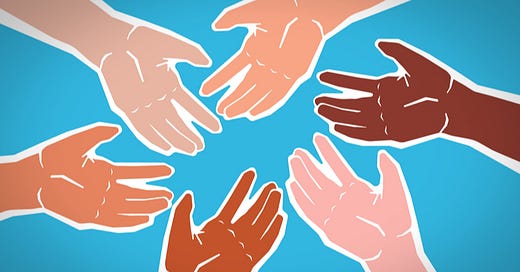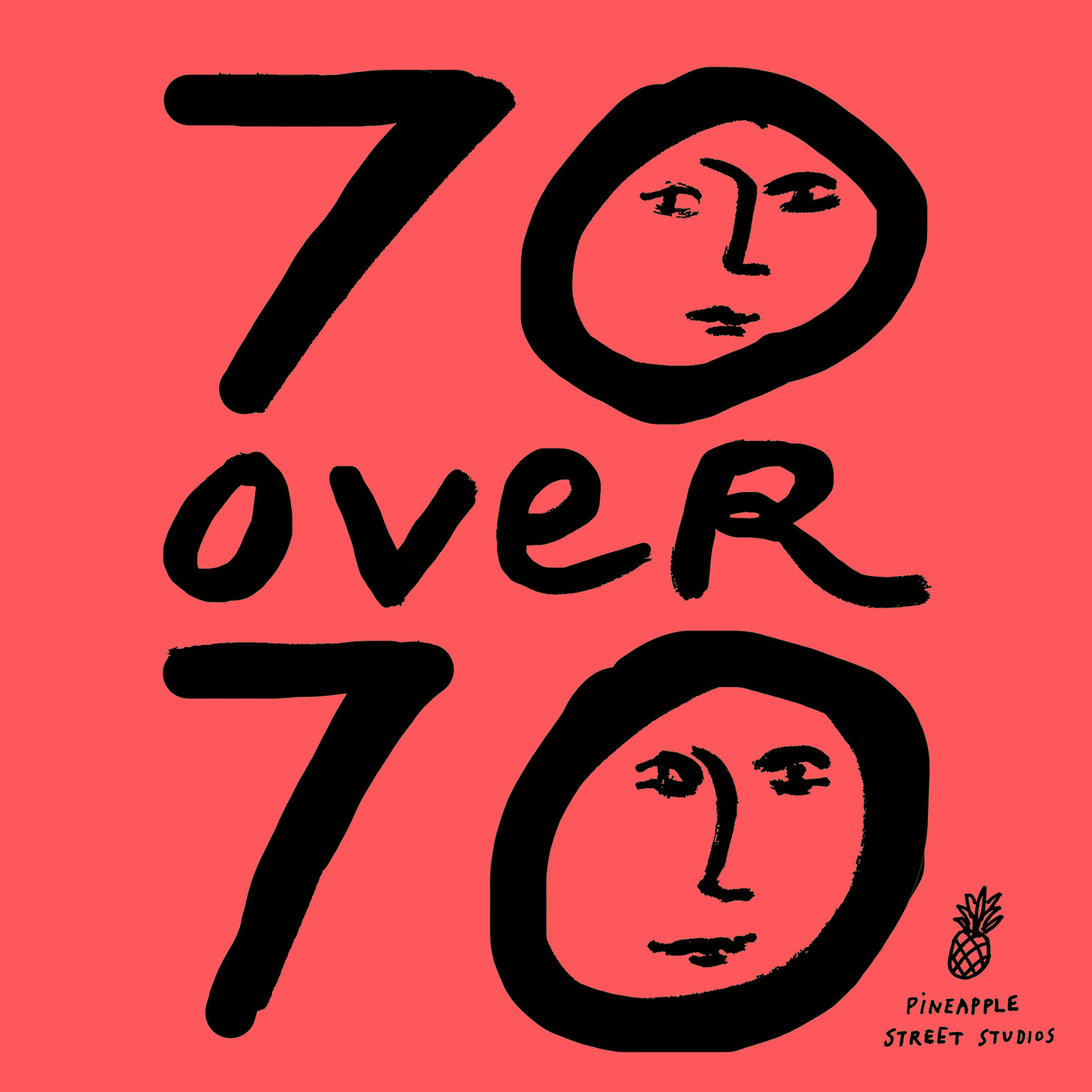Edition #80: The Story of a Mother in Brooklyn
Plus, a breakup poem, the benefits of talking to strangers, and your new favorite podcast
A Note From the Editor
Picture this: you are a young, single mother of two boys, aged eight years old and one year old, and you’re carrying the weight of the world on your shoulders. Your boys are healthy and sweet and for that you are grateful, but you are also very much alone. “It takes a village to raise a child,” as the old adage goes, but you do not have a village. You were raised in the foster care system so you’ve been on your own since the start. You have no mother to babysit or dole out advice, no sister to confide in, no father to fix the leaking sink.
You do have a man in your life—or, you did. He isn’t the right man and you know this because of the way he treats you, the way you’ve heard him treat his other women. He is abusive, physically and emotionally, and you must keep away from him because you don’t want your boys thinking that behavior is acceptable. You also don’t want them to fear for your life. They’ve seen things they cannot unsee, things that will stay with them. But it’s hard to stay away because he’s the only support you’ve ever known, the only love you’ve ever known. You are smart, intuitive. You know love doesn’t have to look like this. That knowledge doesn’t make leaving easier.
You’ve always done your best—you used to work at that little restaurant on the corner. Then COVID happened, the restaurant closed down, and you were out of work. But you know what it’s like to live off of very little because when your eldest son was an infant, the two of you were homeless for a period of time. You learned how to find the resources available to you, how to make things work, and those same resources are what keep you housed and fed upon losing your restaurant job. But it isn’t much and your home doesn’t feel safe. There are things you want, things you need. Your son is remote learning and you’re watching him struggle, wishing you could do more to help, wondering how you’ll be able to afford his school uniforms come fall—he’s grown so much. Your infant needs diaper change after diaper change. Diapers are expensive. Everything is expensive. There is no one to call.
You feel your loneliness like a second skin. It touches every part of your body, wraps itself around you.
You are 28-years-old.
—————
This is the story of a woman I have gotten to know over the last few months, who will be the recipient of an upcoming mutual aid style community festival I co-organize called Arty Party. My two best friends and I started this community of care earlier this year and it has turned into something special—an afternoon of performances by talented singers, rappers, readings by published authors, and poets. Also, a chance to shop our favorite small local businesses, everything from dried flowers to tarot card readers to boozy slushies. Most importantly, the afternoon serves as a method of raising money for someone in our community who needs it.
My favorite part about this month’s recipient is that despite all of this stress, despite all of these systems that have constantly failed her, she isn't jaded or hopeless. After losing her job during the pandemic, she and her eight-year-old wanted to figure out a way to start their own business to supplement their income. They did hours of research, watched a bunch of YouTube videos, learned how to build a website, and eventually decided to start a natural beauty and wellness business called Goddess Indulgences. They make everything by hand in their Brooklyn apartment using all-natural ingredients. They often cannot fulfill the orders until orders come in, as they use the funds from the purchases to buy what is needed to make the products, so my hope is that we can raise enough money that she can use some of it to invest in her business.
—————
I’ve said it before and I’ll say it again: mutual aid is the future of community care. If you're not familiar, mutual aid is a method of giving in which every day people get together to meet each other's needs. During the thick of COVID, communities enacted mutual aid in a big way, coming together to help their neighbors with groceries community fridges, errands and bill paying. But it doesn’t have to stop now, nor should it. There are always people who need help and there are always people who can give it. It’s not charity, it’s solidarity — a community where people lift eachother up; one where you can expect to receive the same help you’re able to give.
—————
Cheers, my dears, and thank you for reading. If you’d like to get involved in Arty Party this month, here are two ways to do so:
For NYC folks, come to our event this Sunday, 8/8 from 12 pm-2 pm in Fort Greene Park! We have an incredible lineup of musicians (listen to this song and this song if you need further convincing), writers, and vendors (drooling over this vendor and swooning over this one). The event is free, but proceeds from our vendors and our raffle are donated directly to the recipient.
If you can’t make the event but you’d like to contribute, you can donate on Venmo at Arty-Party-Fundraiser
Sending you all of my love and thanks.
Three Pieces of Content Worth Consuming
‘Doctor Peyo’: The Horse Comforting Cancer Patients in Calais. I consider myself a moonlighting horse girl. I didn’t grow up riding, but I’ve ridden enough times in my adult life to know that I love it and that horses are some of the most magical creatures. As such, this photo essay made me ugly cry. A small hospital in France allows a former show horse, who seems to have a sixth sense for sickness, to comfort dying patients.
Love After Love: A Poem. Breakups are hard. Divorces are hard. Walking away from a person whom you revealed a tender part of yourself is hard, no matter what the circumstances. I thought about the notion of leaving quite often this week, recounting that particular breed of loneliness I have felt upon exiting relationships in the past. This poem is perfect for anyone who might be experiencing that now (I’m sending you hugs).
The Surprising Benefits of Talking to Strangers. I’m a big advocate of talking to strangers, so I didn’t need much convincing in this department. One thing I’d never thought about that the article brings up early on is how Americans tend to condition children to be afraid of strangers via the “stranger danger” motto. While this is well-intended, the results can be long-lasting and less than positive: a society of people running off of fear, who assume the worst in everyone they don’t know. Talking to strangers, according to the studies cited here, is actually better for your mental health and your sense of belonging.
Perhaps You Should…
Listen to 70 Over 70
Nearly every week I almost suggest an episode of 70 Over 70, the one podcast that has been able to consistently hold my attention. The episodes are short and heartfelt and every time I listen, I find myself jotting down tidbits of wisdom and fragments of the heartfelt stories guests share. It’s a podcast about making the most of the time we have left, and each week notable person over 70 is interviewed. Start at the prologue and enjoy a good cry.
**Bonus Content** (Upper East Side, Not Rich)
This video had me cackling. New Yorkers get it.
A Quote From A Book You Should Read:
“Wasn’t friendship its own miracle, the finding of another person who made the entire lonely world seem somehow less lonely? Wasn’t this house, this beauty, this comfort, this life a miracle?”
-A Little Life by Hanya Yanigahara
This newsletter is best served with a side of conversation, so drop your opinions, reflections, and thoughts in the comments below and let’s get to talking.
Or, share the most thought-provoking piece from today’s edition with someone you love, then call them up to discuss, debate, and percolate. As a wise woman once said, “Great minds discuss ideas.”






